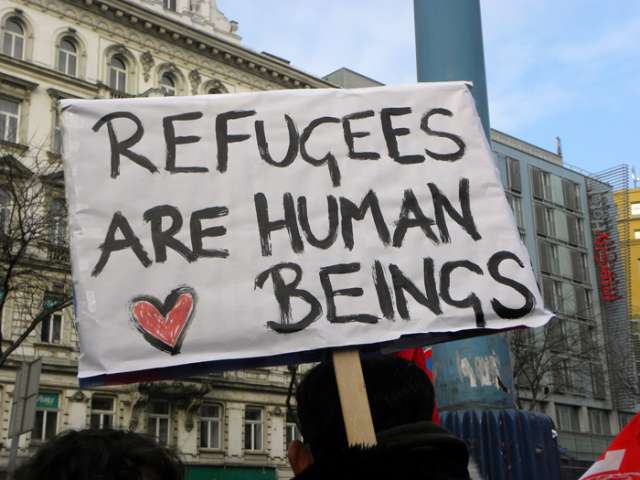For the refugees streaming into Hungary, running away from a war-torn country is more than a figure of speech. It means running from police at the sound of a suspicious rustle in the bushes. Or walking five days straight, nearly 50 miles, just to be able to sit and smile on the steps of the train station here.
In the mornings at Keleti station, where thousands of migrants arrive each day with hopes of making it to Western Europe, children and adults step gingerly toward open-air faucets about two feet from the ground, where water flows into two blue buckets. They brush their teeth and wash their faces, and the men help each other shave.
“No foot-washing in sink,” a sign reads, so they push aside the buckets. They slip out of their sneakers. Their feet emerge swollen and calloused and wrinkly and weathered and, sometimes, caked in dirt. Toes are bent and curled and mangled, and when the waters grace them, the migrants let out a sigh of relief. This familiar and important ritual makes the place feel a little like home. In Islam, the ritual of foot-washing is a custom before prayer.
The refugees’ feet “can be hard to look at because we see that they’ve suffered so much,” said Ronnie Youssef, a 30-year-old from Sweden providing volunteer medical aid. He had been touring Europe with his friends but decided to stay in Budapest because “the conditions [for the migrants] were so bad it felt wrong to walk away.”
For him, their story is personal. Some three decades ago, his parents and three siblings also came through Keleti after they left Lebanon during the civil war.
“All my life I heard about this walk, because I didn’t experience it,” Youssef said. “They would talk about walking, walking, walking for days on end so I could have a good life. Look around: Women. Children. I don’t think I fully believed how hard it was until I got here.”
An area under the train station is filled with shoes. Some were donated by volunteers, others by the migrants themselves, if they had sneakers in good condition that another migrant could use.
Oudah and a friend walked alone. His parents told him to flee to avoid joining the Syrian army.
“In my country, war has no age,” Oudah said. “Soon, I’ll be fine.”
Volunteers gave him another pair of shoes, size 8.
Oudah hopes to make it to the Netherlands and then apply for his parents to seek asylum. First, he has to get to Austria.
But trains from Budapest to Vienna have been suspended, so migrants are being sent to a stop more than a mile from the Austrian border. When Oudah climbs off the train, he’ll start walking again.
More about:
















































